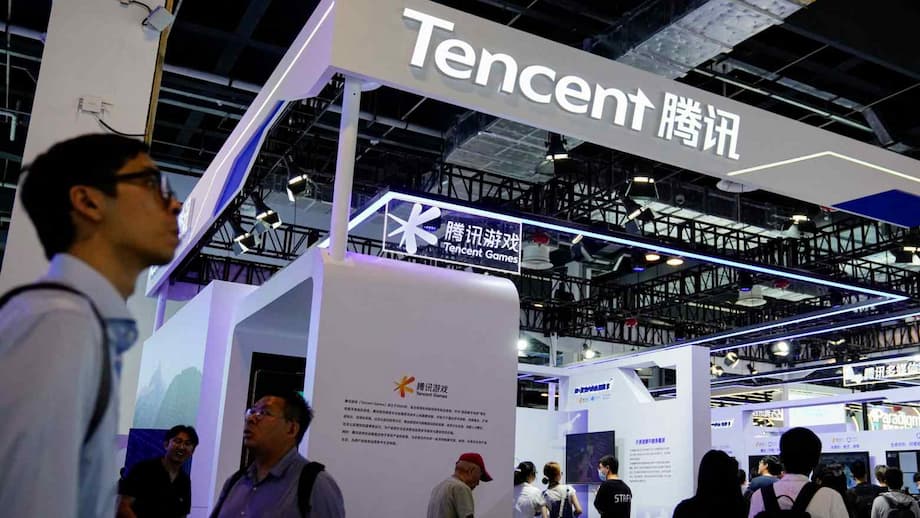Tencent’s Global AI Ambitions: A New Chapter in Japan and Southeast Asia
Chinese technology giant Tencent is accelerating its international expansion, targeting Japan and Southeast Asia with a new wave of artificial intelligence (AI) services. Building on years of technological refinement and domestic dominance, Tencent’s latest moves signal a strategic push to become a global leader in AI-powered solutions, cloud computing, and digital infrastructure. This expansion is not only about exporting technology but also about adapting to local needs, fostering partnerships, and shaping the future of digital economies across Asia-Pacific.
- Tencent’s Global AI Ambitions: A New Chapter in Japan and Southeast Asia
- Why Japan and Southeast Asia? Understanding Tencent’s Strategic Focus
- The Technology Behind Tencent’s AI Expansion
- Competitive Landscape: How Tencent Stacks Up Against Rivals
- Real-World Applications: From Gaming to Finance and Beyond
- Financial Impact and Future Outlook
- In Summary
Why Japan and Southeast Asia? Understanding Tencent’s Strategic Focus
Japan and Southeast Asia represent two of the most dynamic and rapidly growing digital markets in the world. Both regions are experiencing a surge in demand for cloud computing, AI-driven applications, and digital transformation across industries such as gaming, finance, manufacturing, and retail. For Tencent, these markets offer fertile ground for growth, especially as domestic opportunities in China mature and competition intensifies.
According to Tencent executives, the company’s AI services in these regions will leverage technology honed in China, including generative AI tools, biometric solutions, and autonomous AI agents. The goal is to provide tailored offerings that address the unique challenges and opportunities of each market, from supporting small and medium-sized enterprises (SMEs) to enabling large-scale digital infrastructure projects.
Japan: A Hub for Innovation and Digital Transformation
Japan’s advanced economy, robust digital infrastructure, and appetite for innovation make it a prime target for Tencent’s AI ambitions. The country’s cloud computing market is projected to reach over $91 billion by 2030, with a compound annual growth rate (CAGR) of 22.1 percent. The data center market is also expanding rapidly, driven by the need for secure, scalable, and high-performance computing resources.
Tencent’s recent launch of a new cloud region and data center in Osaka marks its third such facility in Japan, following two in Tokyo. This expansion is designed to support Japanese businesses in integrating AI, cloud, and media solutions, while also creating local jobs and developing talent. Hanson Liu, Head of Tencent Cloud Japan, emphasized the company’s commitment to deepening collaborations with business partners and enabling digital transformation across sectors.
Southeast Asia: A Digital Frontier with Immense Potential
Southeast Asia is emerging as a digital powerhouse, with governments and enterprises investing heavily in cloud infrastructure, AI adoption, and digital services. Countries like Indonesia, Thailand, and Vietnam are implementing data residency laws and encouraging local cloud solutions, creating opportunities for providers like Tencent to offer compliant, localized services.
Tencent’s strategy in Southeast Asia includes building digital infrastructure tailored to local needs, such as supporting the mass production of internet-connected vehicles in Thailand and partnering with regional ride-hailing and fintech companies. The company’s cloud services have already been adopted by over 30 auto manufacturers and mobility tech firms in the region, reflecting strong demand for AI-driven solutions in transportation and logistics.
The Technology Behind Tencent’s AI Expansion
At the core of Tencent’s global AI push is its Hunyuan series of large language models (LLMs), including the recently launched Hunyuan-A13B. This model, with 80 billion parameters, uses a Mixture-of-Experts architecture to activate only 13 billion parameters during inference, reducing latency and improving efficiency without sacrificing performance. By open-sourcing this model, Tencent has fostered a vibrant developer ecosystem, accelerating innovation and adoption across industries.
Generative AI tools are a key focus for Tencent’s international rollout. These include chatbots, content generation engines, and AI-powered agents capable of automating complex tasks. In Japan, Tencent Cloud has introduced AvaMo, an AI-powered avatar video service that allows users to create realistic digital avatars for video content. This service caters to the growing demand for AI-driven content creation tools among businesses and creators, streamlining the production of engaging multimedia content.
Beyond content creation, Tencent is embedding AI into core platforms like WeChat, which boasts 1.4 billion monthly active users. The integration of AI chatbots and personalized recommendation engines has driven a 20 percent year-on-year increase in marketing services revenue, demonstrating the commercial impact of AI-driven enhancements.
Cloud Infrastructure: The Backbone of AI Services
Tencent’s global cloud infrastructure underpins its AI ambitions. The company operates 56 availability zones across 21 regions, with a network of over 3,200 global acceleration nodes. This extensive infrastructure enables Tencent to deliver low-latency, high-reliability services to customers worldwide.
The new data center in Osaka is particularly significant, as it strengthens Tencent’s presence in Japan and supports the growing demand for cloud and AI services. The facility is expected to play a crucial role in enabling Japanese companies to compete globally, especially in sectors like gaming, media, and fintech.
Competitive Landscape: How Tencent Stacks Up Against Rivals
Tencent is not alone in its quest for global AI dominance. Chinese rivals like Alibaba Cloud and Huawei Cloud are also expanding aggressively, investing billions in new data centers and AI infrastructure across Asia-Pacific, the Middle East, and beyond. Alibaba Cloud, for example, plans to invest over $52.9 billion in cloud and AI hardware over the next three years, with a focus on emerging markets and localized solutions.
Western tech giants such as Microsoft and Amazon Web Services (AWS) are also ramping up investments in the region, with multi-billion-dollar commitments to generative AI and cloud infrastructure. The Asia-Pacific cloud market is projected to grow at a CAGR of 20.2 percent, reaching $510.3 billion by 2030, driven by AI integration, government mandates for sovereign cloud, and hybrid cloud adoption.
Despite trailing Alibaba Cloud in domestic market share (10 percent versus Alibaba’s 33 percent), Tencent’s ecosystem-centric approach offers a unique edge. By embedding AI into widely used platforms like WeChat and gaming services, Tencent captures value across multiple touchpoints, while competitors often rely on standalone offerings.
Challenges and Opportunities
Expanding globally is not without challenges. Tencent and other Chinese tech firms face rising barriers in international trade, compliance with local regulations, and the need to adapt to diverse cultural and business environments. Data localization laws in countries like Vietnam and Indonesia require cloud providers to store data domestically, adding complexity to cross-border operations.
To address these challenges, Tencent is investing in local recruitment, supply chain development, and partnerships with regional companies. Price competitiveness, adaptability, and a focus on value-added services are key differentiators that help Tencent win business in competitive markets.
Real-World Applications: From Gaming to Finance and Beyond
Tencent’s AI and cloud services are finding applications across a wide range of industries. In gaming, AI-driven enhancements such as dynamic content generation have extended the lifecycle of blockbuster titles like Honour of Kings, which boasts over 100 million daily active users. The company’s TiMi Studio Group is leveraging AI to develop new games and expand into international markets, with a particular focus on Europe, North America, Japan, and Southeast Asia.
In finance, Tencent has integrated AI into anti-money laundering systems and cross-border payment platforms, enabling more secure and efficient transactions for global commerce. The company’s collaboration with XTransfer, a B2B fintech platform, exemplifies how AI can streamline compliance and risk management in international trade.
Manufacturing and automotive sectors are also benefiting from Tencent’s AI-powered solutions. The company has helped automaker GAC Group establish a digital infrastructure system tailored for Southeast Asia, supporting the rollout of internet-connected vehicles in Thailand. These initiatives demonstrate Tencent’s ability to adapt its technology to local market needs and drive digital transformation across industries.
Partner Ecosystem: Enabling Digital Transformation
Tencent Cloud’s Partner Network plays a crucial role in supporting overseas expansion. By offering comprehensive marketing support, presales and aftersales services, and professional training, Tencent enables partners to leverage its ecosystem resources and industry-leading technologies. Success stories from around the world highlight Tencent Cloud’s impact on digital transformation, cloud adoption, and business growth across diverse sectors.
Financial Impact and Future Outlook
Tencent’s investments in AI and cloud infrastructure are yielding tangible financial returns. In the first quarter of 2025, the company reported total revenue of RMB 180 billion (USD 25.1 billion), a 13 percent year-on-year increase. The FinTech and Business Services segment grew 16 percent to RMB 27.6 billion, driven by AI-powered improvements in advertising and gaming. Capital expenditures in AI infrastructure surged by 91 percent year-on-year to RMB 27.5 billion, reflecting Tencent’s aggressive commitment to scaling its capabilities.
Despite significant investment costs, Tencent’s free cash flow remained robust at RMB 47.1 billion, demonstrating its ability to balance high-growth initiatives with financial discipline. The company’s global expansion, including new cloud regions in Japan and partnerships in Southeast Asia, positions it to capitalize on the region’s AI-driven growth and emerging opportunities.
Broader Implications: Shaping the Digital Future of Asia-Pacific
Tencent’s expansion into Japan and Southeast Asia is part of a broader trend of Chinese tech firms going global. As governments and enterprises across Asia-Pacific embrace digital transformation, the demand for AI-powered solutions, cloud infrastructure, and localized services is set to soar. Tencent’s ecosystem approach, focus on partnerships, and commitment to innovation position it as a key player in shaping the region’s digital future.
However, the success of this expansion will depend on Tencent’s ability to navigate regulatory complexities, build trust with local stakeholders, and deliver value that meets the unique needs of each market. As competition intensifies and technology evolves, Tencent’s agility, adaptability, and ecosystem strength will be critical to sustaining its global leadership in AI and cloud computing.
In Summary
- Tencent is expanding its AI and cloud services into Japan and Southeast Asia, leveraging technology refined in China.
- The company has launched a new data center in Osaka, Japan, and is building digital infrastructure tailored to Southeast Asian markets.
- Generative AI tools, avatar video services, and AI-powered business solutions are key components of Tencent’s international offerings.
- Tencent faces competition from Chinese and Western tech giants but differentiates itself through an ecosystem-centric approach and strong local partnerships.
- Financial results show robust growth in AI-driven segments, with significant investments in infrastructure and innovation.
- The expansion reflects broader trends in Asia-Pacific, where demand for AI and cloud solutions is driving digital transformation across industries.
- Tencent’s success will depend on its ability to adapt to local regulations, build trust, and deliver value in diverse markets.












